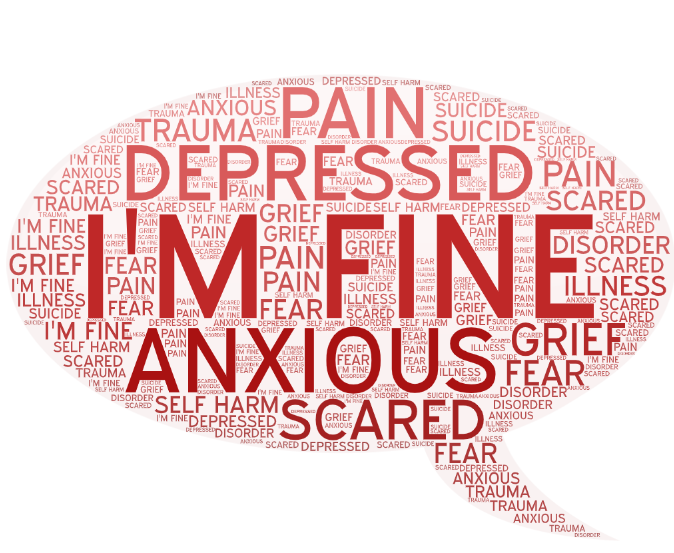The Importance of Talking About Mental Health
Many teens and young adults struggle with mental health, and have trouble finding someone to talk to, and/or talking to someone about their problems.
Dealing with mental health problems is something we should all be able to do.
November 15, 2020
For a couple of years now, I have struggled with anxiety and other mental health issues. I had terrible thoughts, constant worries, and made some not-so-great decisions because of it. Instead of reaching out to get help, I hid it from everyone. I didn’t want anyone to see or realize how messed up I was in my head. The only form of coping was a journal I kept. I would mark encounters or experiences, feelings, and decisions all related to my anxiety. When single entries were getting to be pages long, I knew I should talk to someone, but just saying something was so hard. This is a problem for so many people, but why?
According to BBC, opening up about your mental health is hard for a multitude of reasons. A huge part of anxiety is constantly thinking that others are judging you. So the fear of being judged, then treated differently because of it is a huge part of not wanting to open up, as well as the fear of dismissal. It is difficult to see mental illness from the outside, and know what is going on inside someone’s head. Often many people seem fine, so their pleads for help are often overlooked and dismissed. This was my biggest challenge. My parents knew I had anxiety, but they didn’t know the depth. And there was no reason to believe it was as bad as it was. I have friends, a stable homelife, and participate in extracurriculars, and because of this it would be easy to dismiss my pain, which happens to many people. The most important thing to do when being dismissed is to keep talking. Find a teacher or a coach that will listen, and find you help.
Here are some tips to help you start that conversation. A good way to start, according to Mental Health America, to write a note, text, or email. This will help build your confidence up, and let others know you need to talk. This note could be as simple as saying “there is something I want to tell you,” or more in depth on what exactly you have been feeling. Once you feel ready to have that painful conversation, go at your own pace. Child Mind Institute explains that it is going to feel overwhelming, and is important to go at your speed. One of the most important things when talking is to not downplay it, as Child Mind Institute stated. Say everything you are feeling and don’t make it seem less than it is. As someone who constantly hides their pain, I can reassure you that this is the most important part. The only way to get the help you need is to explain everything that is going on in your head. You don’t have to tell them everything if you don’t want to, you just need to make sure they can understand the level of suffering you are experiencing. A final important step is to not be worried about messing up. There is no right way to do this, so the only way you can mess up is by not telling anyone.
Once you have had this conversation, you can work with your close person to come up with a solution. Most of the time the most helpful thing is finding a person who can comprehend and help you with what you are going through. These can include therapists, counselors, or other mental health professionals. They will help you find the right treatment plan. While mental disorders and illnesses are not something that can just go away, there is always a way to help them. One last thing to remember is that if someone ever comes and talks to you, make sure to listen, because you never know what is going on inside someone’s head (Related: Mental Health Month is a great time to learn more about mental health).









